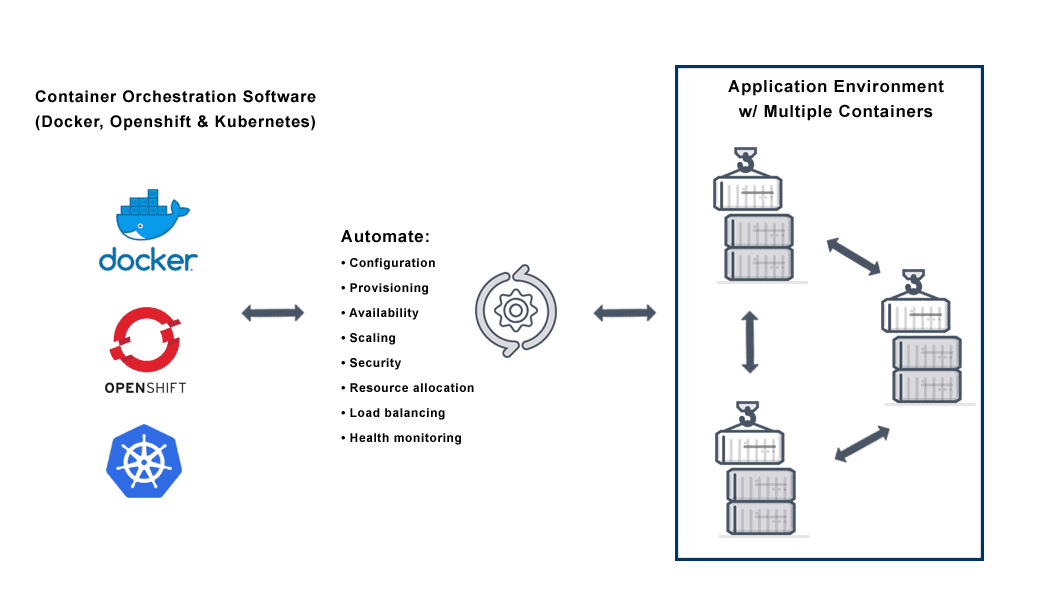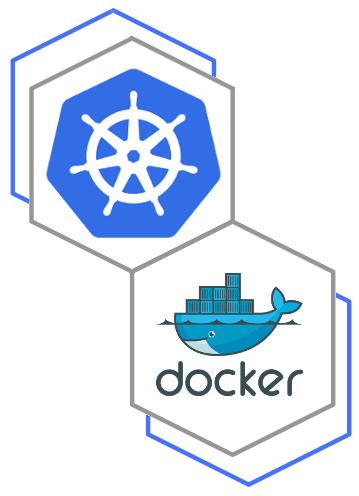

Deployments: These building blocks can be used to create and manage a group of pods.Containers in a pod run on the same node and share resources such as filesystems, kernel namespaces, and an IP address. Pods: Kubernetes deploys and schedules containers in groups called pods.The following list provides some other common terms associated with Kubernetes: Kubelet: This component receives pod specifications from the API Server and manages pods running in the host.Scheduler: This component places the workload on the appropriate node – in this case all workloads will be placed locally on your host.Controller Manager: This component ensures that the cluster’s desired state matches the current state by scaling workloads up and down.It facilitates communication between the various components, thereby maintaining cluster health. API Server: This component is the management hub for the Kubernetes master node.etcd: This component stores configuration data which can be accessed by the Kubernetes Master’s API Server using simple HTTP or JSON API.The aster node places container workloads in user pods on worker nodes or itself. The architecture for Kubernetes, which relies on this experience, is shown below:Īs you can see from the figure above, there are a number of components associated with a Kubernetes cluster. Overview of KubernetesĪccording to the Kubernetes website, “Kubernetes is an open-source system for automating deployment, scaling, and management of containerized applications.” Kubernetes was built by Google based on their experience running containers in production using an internal cluster management system called Borg (sometimes referred to as Omega). Thanks for the feedback.In this updated blog post we’ll compare Kubernetes (versions 1.5.0 and later) with Docker Swarm, also referred to as Docker Engine running in Swarm mode (versions 1.12.0 and later). When evaluating a solution for a production environment, consider which aspects of operating a Kubernetes cluster (or abstractions) you want to manage yourself or offload to a provider.įor a list of Certified Kubernetes providers, see “ Partners”. IBM Cloud Private-CE (Community Edition) on Linux Containers Local machine solutions table that lists the tools supported by the community and the ecosystem to deploy Kubernetes.

If you’re learning Kubernetes, use the Docker-based solutions: tools supported by the Kubernetes community, or tools in the ecosystem to set up a Kubernetes cluster on a local machine. More simply, you can create a Kubernetes cluster in learning and production environments.

You can also create custom solutions across a wide range of cloud providers, or bare metal environments. You can deploy a Kubernetes cluster on a local machine, cloud, on-prem datacenter, or choose a managed Kubernetes cluster.

This section covers different options to set up and run Kubernetes.ĭifferent Kubernetes solutions meet different requirements: ease of maintenance, security, control, available resources, and expertise required to operate and manage a cluster.


 0 kommentar(er)
0 kommentar(er)
